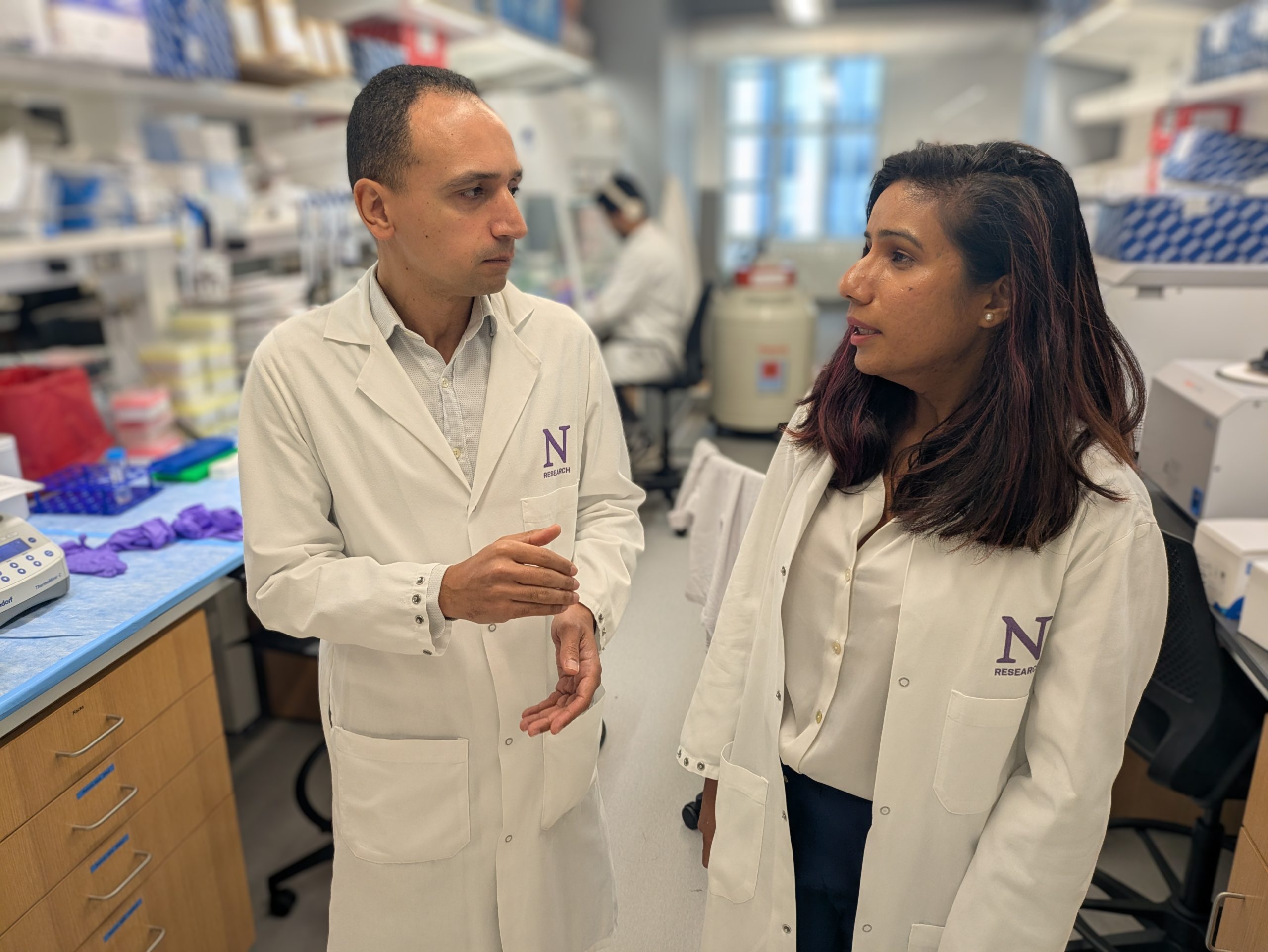Category: Disease Discoveries
-

Northwestern Investigates COVID-19: Omicron, Vaccines, Pediatric Complications
Northwestern Medicine investigators have continued to examine COVID-19, from the impact of prone positioning during treatment to vaccine protection against the Omicron variant in children.
-

Genetic Variants in Epilepsy Gene Identified
Investigators have discovered a new method to determine whether individual genetic variants in the epilepsy-associated gene SZT2 cause the neurodevelopmental disorder, according to a Northwestern Medicine study.
-

Genome-wide Intricacies of Cancer Inhibitor Untangled
A newly discovered inhibitor of a common cancer-causing protein operates selectively, reducing expression of genes that fuel rampant cell proliferation, and altering the epigenome, according to a recent study.
-

Study Shows Cell Membrane-Bound Enzyme is Essential for COVID-19 Infection
The membrane-bound form of the ACE2 protein is the essential receptor for enabling COVID-19 infectivity, according to a Northwestern Medicine study.
-

Study Identifies New Therapeutic Target for Most Common Type of Pancreatic Cancer
Northwestern Medicine investigators have discovered a potential therapeutic target for the most common type of pancreatic cancer, according to a study published in Developmental Cell.
-

New Regulator of Therapy Resistance in Prostate Cancer
Northwestern Medicine investigators have identified a gene that confers resistance to a common prostate cancer treatment, according to a study published in Cancer Research.
-

New Regulator of Prostate Cancer Metastasis Discovered
A transcription factor associated with androgen receptor activity in prostate cancer has a newly discovered role in controlling lipid biosynthesis.
-

New Tool to Create Hearing Cells Lost in Aging
Northwestern Medicine scientists have discovered a master gene that programs ear hair cells’ development, overcoming a major hurdle towards restoring hearing.
-

Almost Half of Heart Failure Patients Have Uncontrolled Hypertension and Diabetes
A new Northwestern Medicine study has found almost half of U.S. adults with heart failure have poorly controlled hypertension and diabetes.
-

Regulator of Cancer ‘Stemness’ Discovered
The protein FOXK2 promotes survival of cancer stem cells in ovarian cancer, according to a Northwestern Medicine study.






